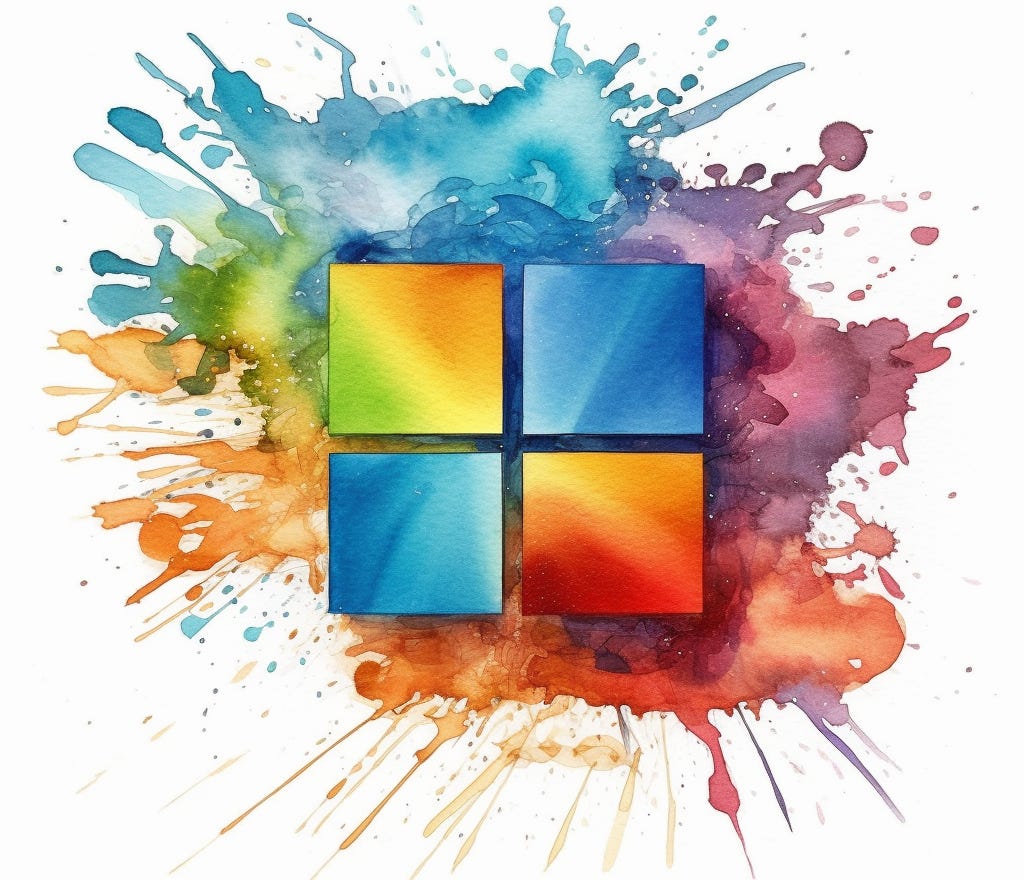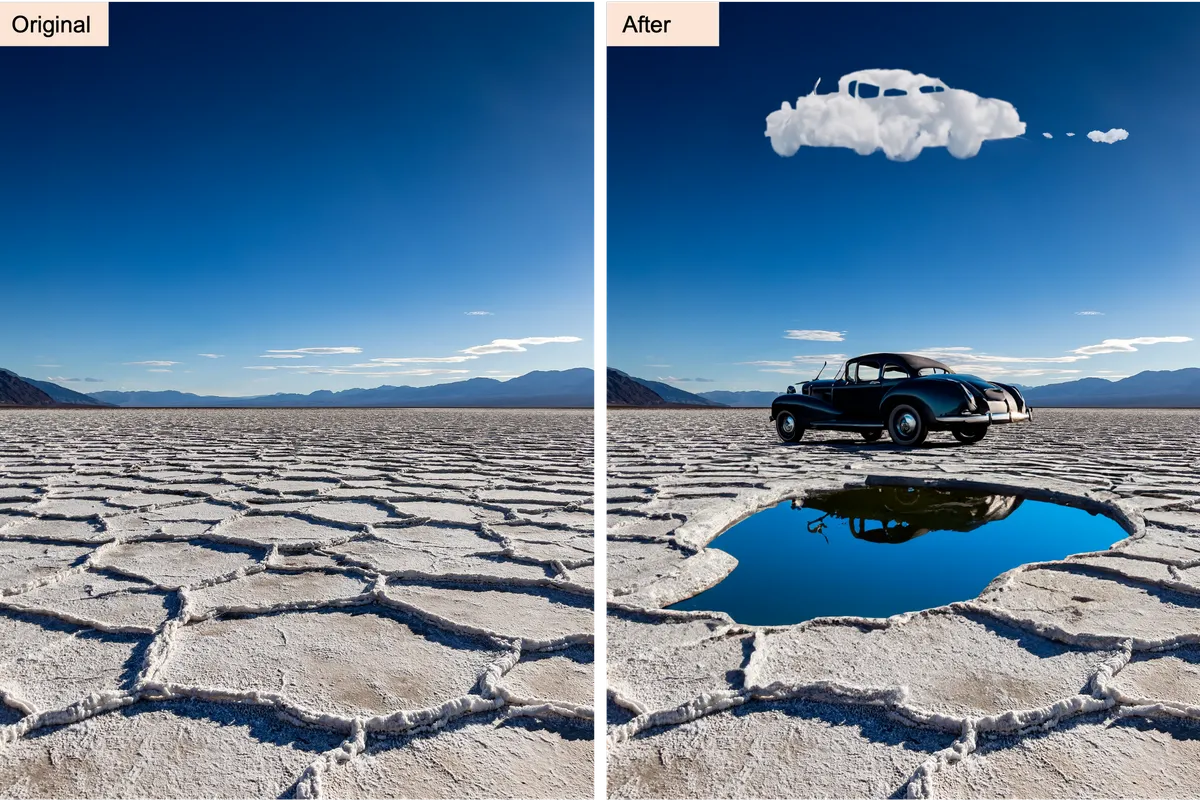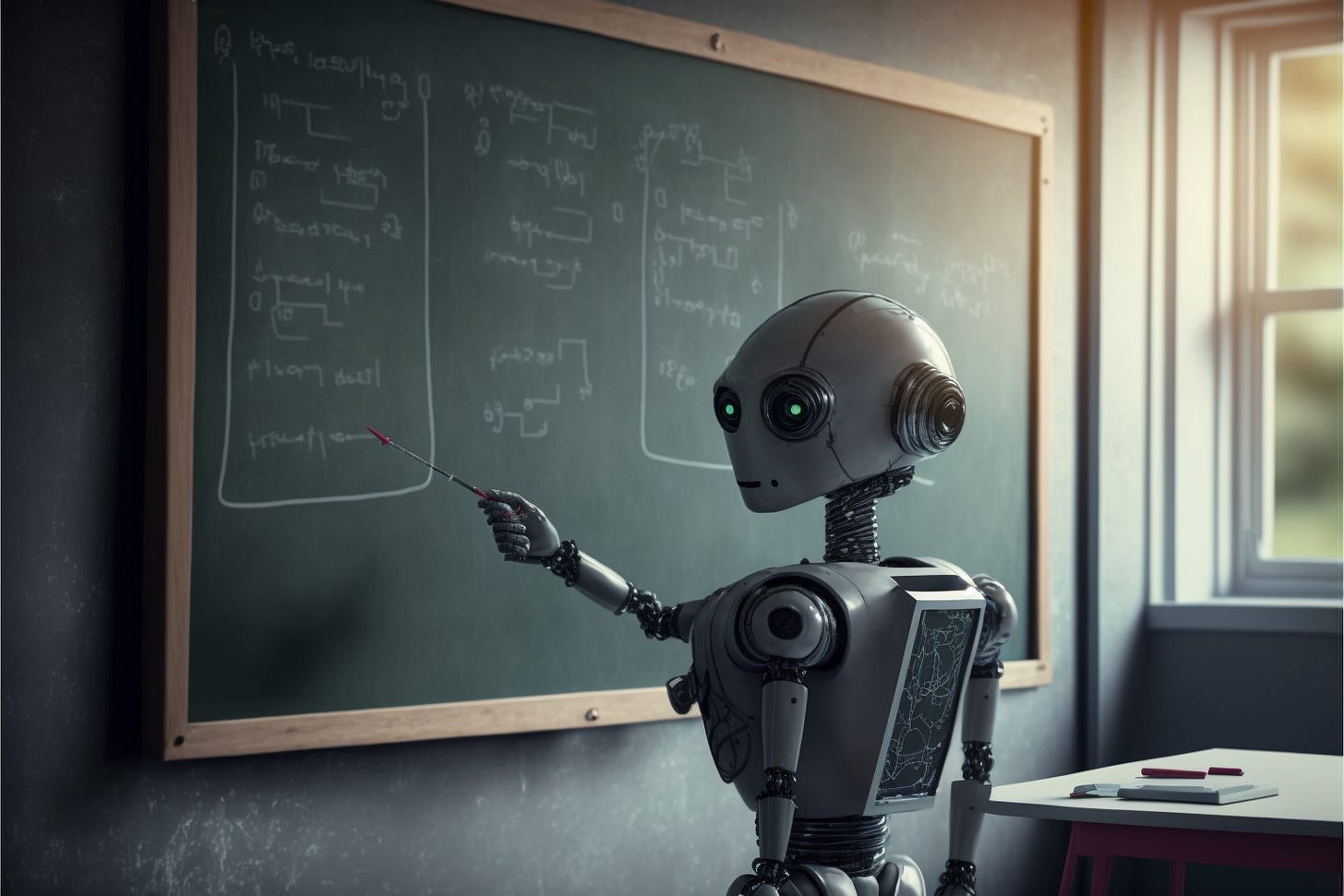AI Roundup 016: Microsoft’s Copilot era
May 26, 2023
Microsoft’s Copilot era
Microsoft Build was this week. If you’re not familiar, it’s an annual conference aimed at software engineers and web developers. And like Google I/O two weeks ago, there was a laundry list of AI announcements.
All the AI announcements I could find:
Windows Copilot, your OS-level personal assistant.
Bing is ChatGPT’s new default search engine.
ChatGPT-style Plugins (using OpenAI's architecture) for Microsoft's Copilot(s).
Windows Terminal is getting generative AI features.
The Microsoft Store adds AI Hub, which highlights AI apps.
Azure AI Studio, letting customers combine GPT-4 with their own private data.
Azure AI Content Safety, which moderates flagged images and text.
Cryptographic watermarks for images generated by Bing Image Creator and Microsoft Designer.
Fabric, a new data and analytics platform, which will have its own Copilot.
Lastly, an interview with Microsoft CTO Kevin Scott, who manages the OpenAI partnership.
The big picture:
While not quite as splashy as Google I/O, Microsoft's Build event shows it's still aggressively pushing ahead.
OpenAI's models have hooks into Bing, GitHub, Office 365, Azure, and now Windows itself. Microsoft and OpenAI's "partnership" feels like an acquisition in all but name.
Elsewhere in the FAANG free-for-all:
Google starts rolling out its conversational AI search tool, and launches Product Studio for merchants to edit images.
Meta's new AI models can speak over 1,000 different languages.
Nvidia stock skyrockets 26% on AI news, and triggers an industry-wise rally.
TikTok starts testing a new in-app chatbot, Tako.
Boardroom AI
As flashy as general-purpose chatbots are, they're only a small part of generative AI's potential. We're now starting to see more large companies develop AI products tailored to specific niches.
Some recent examples:
BuzzFeed's Botatouille, a free chatbot that suggests recipes from its food brand Tasty.
Adobe's Generative Fill, a native Photoshop image generation tool.
Blizzard's internal generative AI tools that will reshape how it makes games.
Spotify's reported plan to create targeted ads based on podcast host voices.
JPMorgan Chase's IndexGPT, an AI to analyze and tailor investment advice.
Why it matters:
There is a ton of latent value in connecting AI to existing tools/workflows/data sources. What we're seeing are baby steps.
The ChatGPT hype is starting to die down, but AI is still working its way into our daily lives.
This reinforces my belief that incumbent platforms will win big as they use AI to get further ahead.
Classroom AI
As students and teachers become more aware of ChatGPT, it's unsurprisingly causing problems. Teachers are struggling to adapt to the new AI landscape, and students are dealing with unfair accusations of plagiarism.
Between the lines:
I have not yet seen any reliable AI writing detection software. But thousands of teachers use tools like Turnitin to evaluate students.
Reddit showcases story after story of students being wrongly accused and/or punished over "AI-written" content.
Some educators are beginning to experiment with AI, in an attempt to embrace the technology rather than fight it.
Things happen
Gorilla: an LLM that can use APIs. GirlfriendGPT. Eating disorder helpline fires staff, moves to chatbots. A Q&A with Grimes on "open-sourcing" her voice. Sam Altman's Eurotrip. A look at AI-generated podcasts, like “The Joe Rogan AI Experience.” AI Captcha: "Identify the yoko." Fake Pentagon bombing photo sparks flash crash.





